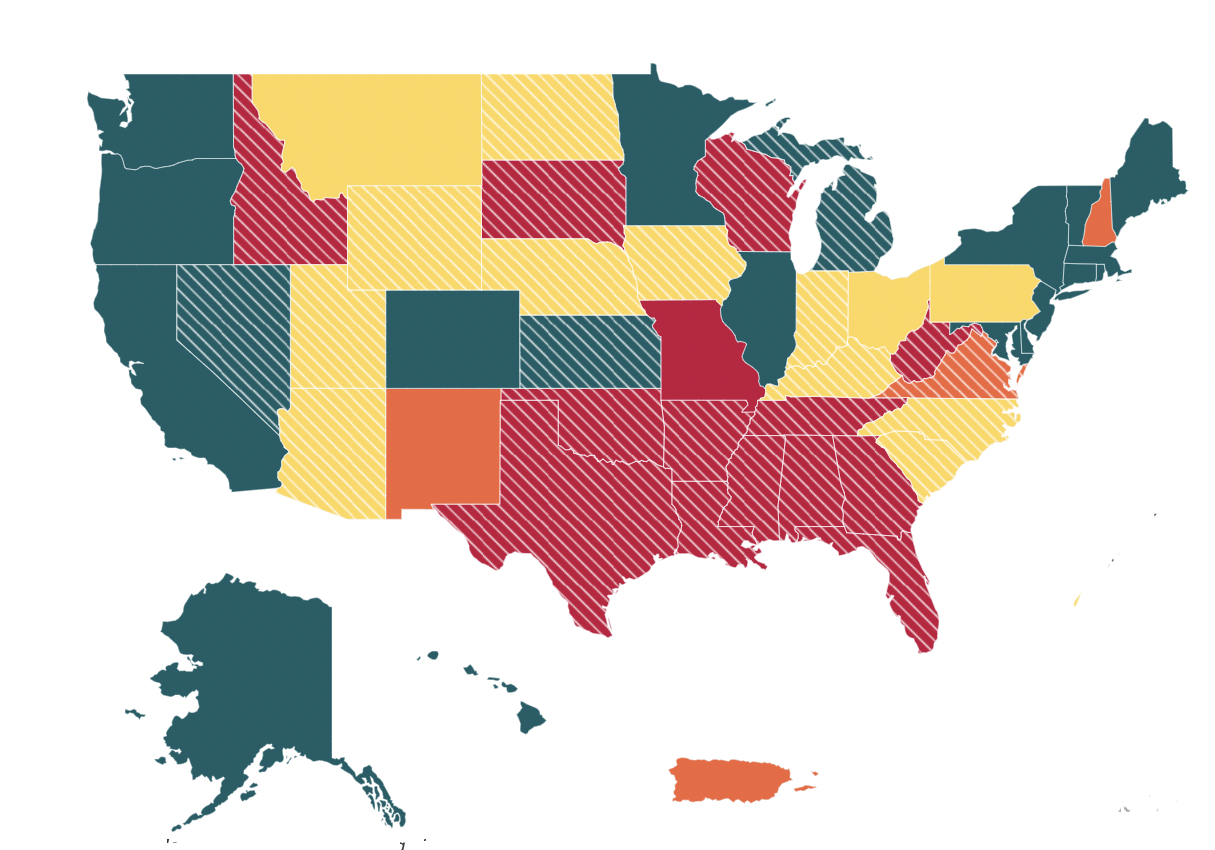Fonte : AFL-CIO
A day where we felt energized and ready to build on this historic victory for women’s rights and increase the number of working people who could access safe abortion and quality, affordable reproductive health care.
These fights are deeply connected, and in many states where abortion has been restricted, workers’ rights are also severely limited. Working people have the ability to respond and that’s why we launched a new map to help workers make informed decisions to better advocate for ourselves and our families.
The map demonstrates how anti-worker policies such as failing to raise the minimum wage, the lack of paid family and medical leave, “right to work” laws and poor access to critical programs like Medicaid interact to shrink democracy and create environments where working families struggle to thrive. Many of these states have lower life-expectancy rates, higher rates of poverty and low voter turnout.
This map is a powerful resource that will give you the information you need to fight back and includes trainings on how to have productive conversations on the issue of abortion and the economy with your community; collective bargaining language to strengthen union contracts; and a voter guide to help you connect these issues to state, local and federal elections.
Your quality of life should not depend on where you live. The labor movement will continue to be a force for progress and economic equality for working women and gender-oppressed people everywhere.

